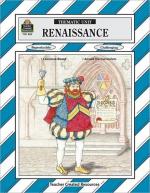|
This section contains 1,273 words (approx. 5 pages at 300 words per page) |

|
The spread of Renaissance humanism into northern Europe gave voice to dissatisfaction that some laymen and religious scholars felt with the church. The church had dominated European life, for nearly fifteen centuries, its authority virtually unquestioned. Most monarchs were aligned with the Holy Roman Church, as were their subjects, and no ruler who wished to stay in power could afford to have the church as an enemy. Such great power led to great wealth, and the lure of both led to corruption within the church. As the popes focused less on spiritual matters and more on maintaining their political power and wealth, a group of reformers arose within the church and began an assault that would eventually split the church in two.
The secular humanists and the religious reformers were similar in that both were committed to a philosophy...
|
This section contains 1,273 words (approx. 5 pages at 300 words per page) |

|




